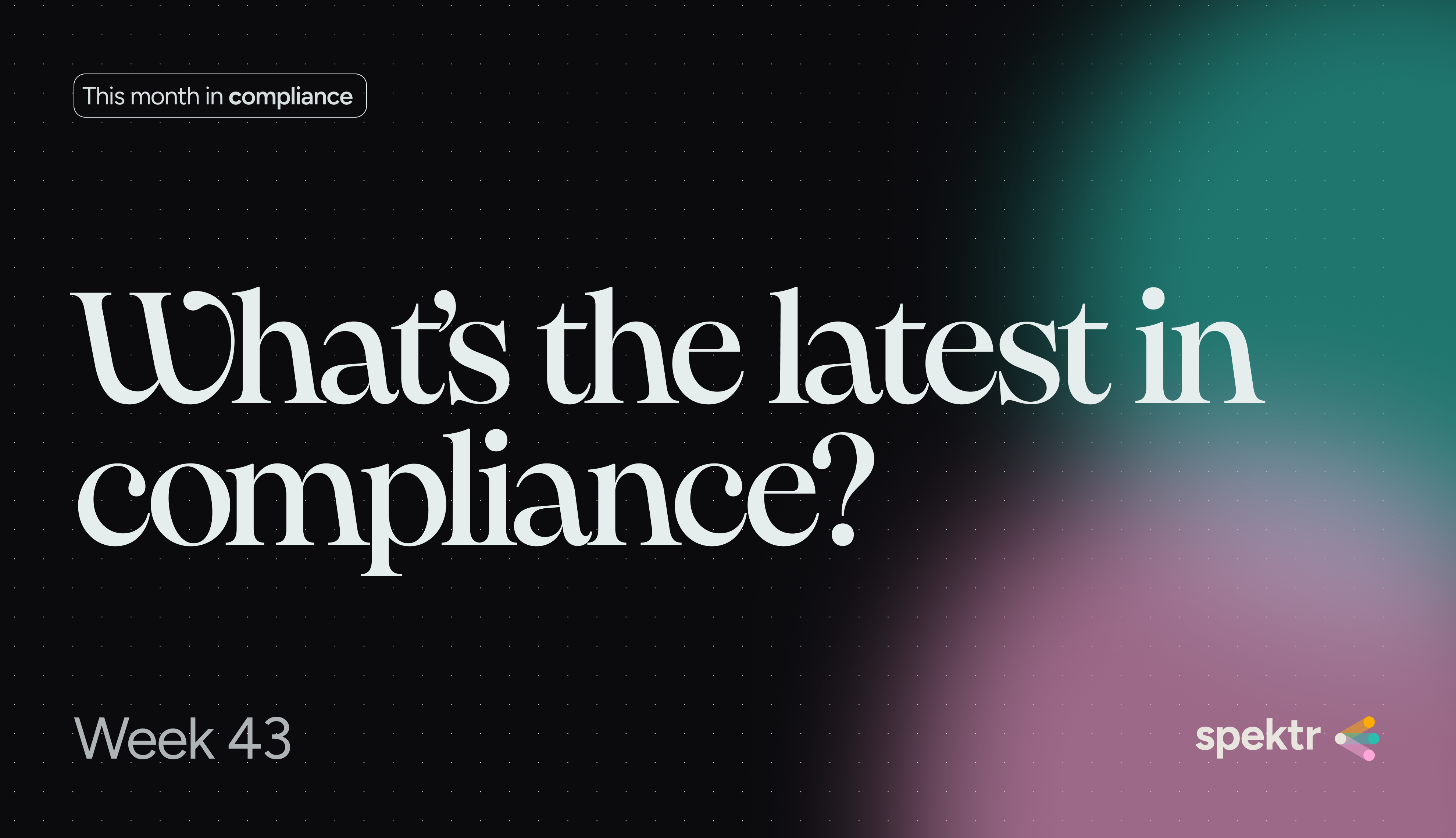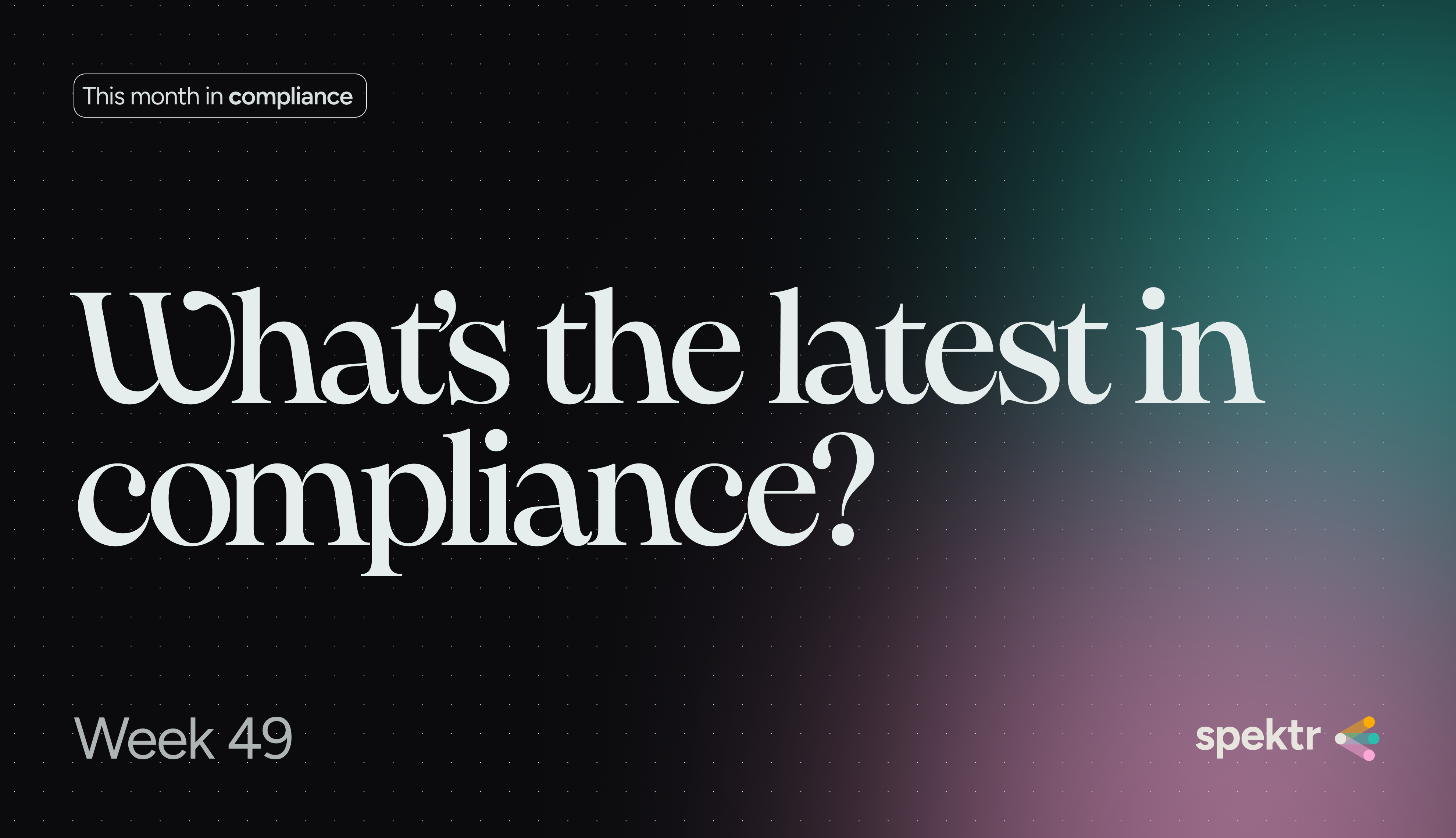This Week In Compliance Vol. 9
Try the platform

Share the article
What's been occupying our compliance attention lately? Here's a rundown of notable updates and regulatory happenings from the past weeks.

Starling Bank Fined £29M for "Shockingly Lax" AML Screening Failures
The Financial Conduct Authority (FCA) has fined Starling Bank £29 million for serious lapses in its anti-money laundering (AML) and financial sanctions screening processes. Despite prior warnings from a 2021 review, the bank continued to open over 54,000 accounts for high-risk customers while using an automated screening system that failed to properly monitor those subject to financial sanctions. The FCA stated that Starling’s failures left the financial system vulnerable to criminal exploitation. The bank has since taken steps to address the issues and improve its financial crime controls, earning a reduced penalty. Starling has expressed regret and issued an apology for the oversight.
Axiom Bank Faces Enforcement Action from OCC for BSA/AML Failures
The Office of the Comptroller of the Currency (OCC) has taken enforcement action against Axiom Bank in Florida for its failure to adequately comply with the Bank Secrecy Act (BSA), anti-money laundering (AML) regulations, and poor risk management practices. The enforcement order requires Axiom to update its BSA/AML action plan, strengthen internal controls, and enhance its risk management strategies. This comes in the wake of TD Bank's recent $3 billion fine for similar failures, signaling increased regulatory scrutiny on financial institutions’ compliance with AML laws.
Swift Launches AI-Powered Real-Time Fraud Detection for Banks
Swift has announced the launch of its AI-driven anomaly detection service, designed to help banks detect and prevent financial crime in real-time. The service, set to be available in January 2025, builds on Swift’s existing Payment Controls Service and leverages anonymized transaction data from its vast network to identify suspicious activities. The rollout follows a successful pilot with financial institutions across multiple regions. Swift has also been collaborating with member banks to explore privacy-preserving technologies, aiming to enhance fraud detection while maintaining data confidentiality. This initiative represents a significant step in bolstering the global banking sector’s defenses against increasingly sophisticated fraud tactics.
UK Treasury Proposes 72-Hour Payment Delay to Combat Fraud
The UK Treasury has introduced a new draft regulation allowing banks to delay payments by up to 72 hours to investigate suspected fraud. The amendment to the 2017 Payment Services Regulations gives payment service providers the power to temporarily halt transactions when fraud is suspected, provided they promptly inform the payer and outline the next steps. This move comes in response to the UK’s escalating fraud crisis, with bank fraud losses surpassing £1 billion last year. The regulation aims to reduce the impact of scams, particularly Authorised Push Payment (APP) fraud, which has caused significant financial harm to UK consumers.
EBA Clarifies Procedures for Classifying Asset-Referenced Tokens and E-Money Tokens as Significant
The European Banking Authority (EBA) has issued a detailed Decision on the procedural aspects of assessing asset-referenced tokens (ARTs) and e-money tokens (EMTs) for significance, as outlined in the Markets in Crypto Assets Regulation (MiCAR). This framework includes the transfer of supervisory responsibilities from national competent authorities to the EBA, the establishment of supervisory colleges, and the harmonization of reporting obligations and timelines. The Decision provides a clear roadmap for managing the significance classification process and smooth transition of oversight duties, ensuring effective supervision of significant ARTs (s-ARTs) and significant EMTs (s-EMTs). The EBA will supervise s-ART issuers directly and exercise dual supervision for s-EMTs in coordination with national authorities.
Germany to Develop European Digital Identity Wallet for Secure and Convenient ID Management
The German Government has announced plans to introduce a digital wallet that will allow citizens to securely store their national ID cards and other official documents on a smartphone app. This move aligns with the European Union’s mandate requiring all member states to implement a standardized European Digital Identity Wallet (EUDI) by 2027. The EUDI wallet will enable users to verify their identity, prove their age, and sign documents electronically across the EU’s 27 countries. By offering a secure and convenient alternative to physical ID cards, the EUDI wallet aims to simplify processes like job applications and online banking, while safeguarding privacy and promoting digital inclusion. The initiative is being developed in collaboration with the Federal Agency for Disruptive Innovation and the Federal Office of Information Security.
At spektr, we understand that keeping up with regulatory changes and maintaining compliance can feel overwhelming. Let's have a chat about your compliance needs and how we can customize solutions to match your unique business requirements!




